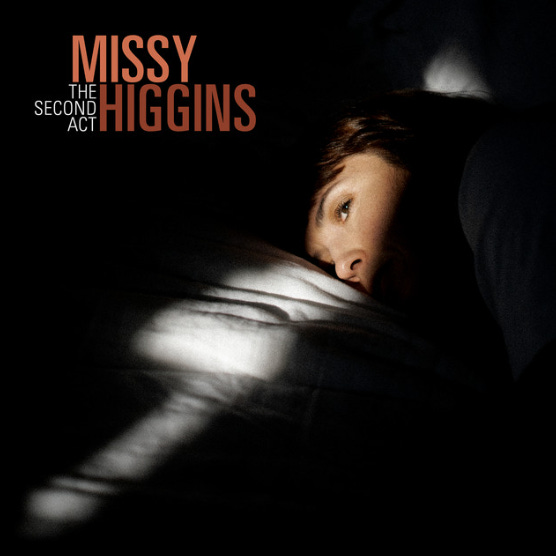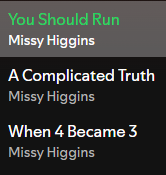Missy Higgins - "The Second Act"
I have to begin by noting that there is nothing happy or bubbly about this album. The Second Act is Missy Higgins’ sixth album, coming exactly twenty years after her debut. Even at the beginnings of her career, her writing was notable for its extraordinary emotional depth, as evidenced by songs like “Ten Days” and “Where I Stood”; not to mention her very first single, “Scars”, which subverted its bubbly instrumentation with an almost traumatic discussion of how people try to change you and then leave when they can’t.
And she wrote that shit young.1
So with this album being written during and after her divorce, it’s bound to be a tumultuous affair at best.
I mean, just look at the first three track titles:
Breakup (and recovery) albums aren’t nearly a new thing. I do feel like there’s been a fresh flood of them over the last few years, but maybe I’m just paying more attention lately. The gold standard is still Kacey Musgraves’ Star-crossed (2021), but there is no shortage of competition amongst artists to create that perfect storm of heartbreak to make you feel things.
The litmus test, though — in my very firm opinion — is whether the album, and its individual songs, actually exudes the emotions that it appeals to. Some albums feel like they’re just paying lip service to the concepts and, even if they’re good on a lyrical level, the shallow delivery ruins the entire experience.
Higgins’ The Second Act blows said litmus test out of the water with the very first song, climaxing at around the three-minute mark with this incredibly raw plea, where Higgins’ voice sort of overloads the production value and you can just hear and feel the terror and desperation that she’s been trying to keep hidden while telling her partner that he’s probably better off without her. Then, throughout the rest of the album, she continually piles the emotional mountain higher and higher.
The bulk of this album aches in this low-and-slow acoustic despondency. One of the best tracks it offers, though, is the palette-cleansing fourth track, “Craters”, which brings up the tempo and presents some level of acceptance in this change in her status quo, in a similar vein to Higgins’ first single, “Scars”, from twenty years ago. Of course, comparing the emotional damage to “craters”, as the song does, makes it incredibly clear that she is still absolutely devastated — but what else can you do but try to move on, go through the motions, have people over and awkwardly dance around the metaphorical crater in your living room floor?2
The album pivots at exactly the halfway mark, with the title track coming as the sixth track of eleven. It’s the point where Higgins makes the active decision to move on — not just the ‘this is my life now’ acceptance of “Craters”, but full-on ‘there’s no going back, it’s time to look forward’. She moves on to trying to date again, going to therapy, and putting in the work to close that door.
It’s a beautiful structural design which showcases the amount of thought and work that went into putting the album together. In recognizing that, I also have to point out that the work was also likely part of a cathartic process, and that really comes through.
It is largely a downer of an album, but it does have that final upswing, right at the end, with “Blue Velvet Dress” illustrating a full change of mindset and definitive healing. Ultimately, I feel like this one strikes a gorgeous balance between Musgraves’ Star-crossed and Kelly Clarkson’s Chemistry. It has incredible conceptual polish, yet is emotionally raw.
There’s a lot to love here.
Rating: Blue
She wrote her first song while still in high school, and it is the opening track for her debut album. That album released right after she turned 21. Very few songwriters are that competent that young.
This is such a vivid and impactful (ha) update on the typical “elephant in the room” phrase.






